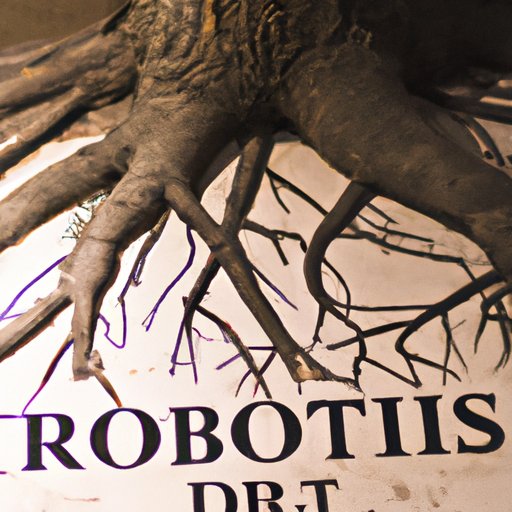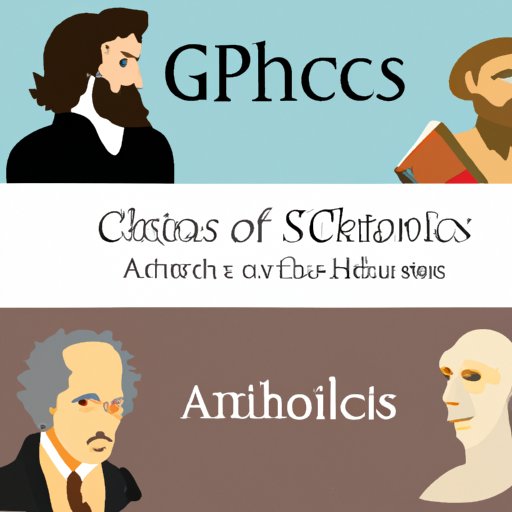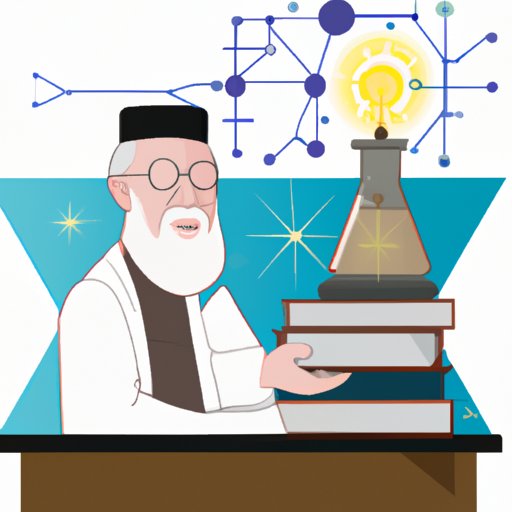Introduction
The question of when did science begin is a complex one that has been debated for centuries. While it is difficult to pinpoint an exact date or moment when science first began, there are certain milestones in history that mark the beginnings of scientific inquiry. This article will explore the history of science and its development over time, from ancient times to the Renaissance.

The Ancient Roots of Scientific Inquiry
The earliest examples of scientific thinking can be traced back to ancient Greece, where thinkers such as Plato and Aristotle sought to explain the natural world through rational inquiry. However, the roots of science can be found even further back in time, with evidence of early experimentation and observation by prehistoric hunter-gatherers. According to historian David C. Lindberg, “the most primitive form of scientific inquiry may have been simply an attempt to observe and describe the world around them.”
In addition to the Greeks, other early pioneers of science include the Babylonians and Egyptians. These civilizations made important contributions to mathematics, astronomy, and medicine. For example, the Babylonians developed a sophisticated mathematical system which included the concept of zero, while the Egyptians developed a calendar based on the movement of the stars.

Greek Philosophers and Their Impact on Early Science
The Greeks are often credited with laying the foundation for modern science. The works of philosophers such as Plato, Aristotle, Hippocrates, and Thales of Miletus provided the basis for much of our current understanding of the physical world. They explored a wide range of topics including mathematics, physics, biology, and astronomy.
The influence of these Greek thinkers was far-reaching. For example, Aristotle’s work on logic and reasoning provided the framework for modern scientific method. His approach to inquiry emphasized the importance of observation and experimentation. He also developed a theory of causation, which suggests that all phenomena have a cause and effect relationship.

Islamic Scholars and Their Contributions to Science
The Islamic Golden Age (7th–13th centuries) saw a flourishing of scientific activity in the Middle East. Islamic scholars made significant contributions to mathematics, astronomy, and medicine, many of which were later adopted by Western scientists. Muslim physicians, for example, developed medical practices that were centuries ahead of their time, such as using antiseptics and running hospitals.
These Islamic scholars also advanced the understanding of optics and astronomical instruments. They developed sophisticated calculators and built observatories to study the stars. They also wrote extensively on the topics of mathematics, physics, and astronomy, making important contributions to the development of modern science.
The Renaissance and Its Impact on Modern Science
The Renaissance period (14th–17th centuries) marked a major turning point for science. During this time, scientists began to use empirical evidence and experimentation to test theories, rather than relying solely on philosophical arguments. This shift towards a more scientific approach to understanding the world resulted in important breakthroughs in fields such as mathematics, physics, and astronomy.
The Renaissance also saw the emergence of some of the most influential scientists in history, such as Galileo Galilei, Johannes Kepler, and Isaac Newton. These scientists laid the groundwork for the development of modern science, paving the way for future generations of scientists to build upon their discoveries.
Conclusion
In conclusion, it is impossible to determine exactly when science began. However, it is clear that the roots of scientific inquiry can be traced back to ancient times, with the works of early philosophers such as the Greeks, Babylonians, and Egyptians. The Islamic Golden Age and the Renaissance period also played an important role in the development of modern science, with their contributions paving the way for future generations of scientists.
Overall, science has evolved significantly over time, with each new generation building upon the discoveries of their predecessors. As we continue to make new discoveries and push the boundaries of scientific knowledge, it is important to remember the humble beginnings of science and the pioneers who helped shape our understanding of the world.
(Note: Is this article not meeting your expectations? Do you have knowledge or insights to share? Unlock new opportunities and expand your reach by joining our authors team. Click Registration to join us and share your expertise with our readers.)
